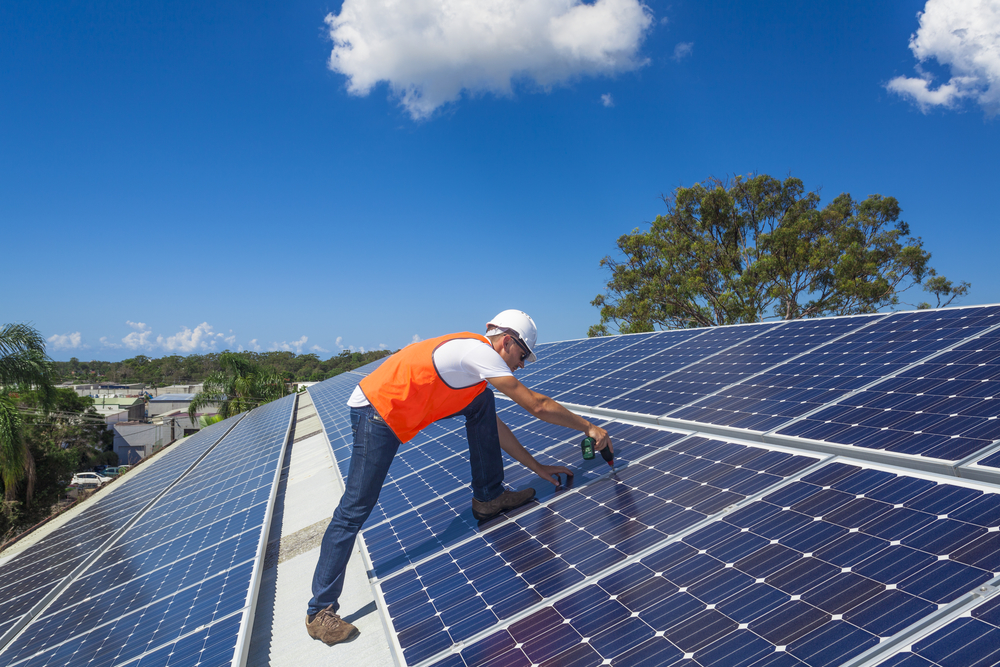If you are an admirer of solar energy and other renewable energies, the new law passed in California should bring a smile on your face – all new houses built in California will need to have solar panels installed on construction. The law specifies what kinds of buildings will have to comply with this new law and it includes residential structures no higher than three floors, regardless whether they are a single family dwelling or a condo unit with more residents.
The law is set to be implemented in 2020. Solar energy companies such as Action Solar are preparing for a sharp increase in demand due to this new law and point out how beneficial this move will be for everyone involved, including the environment.
New Homes in California
There is an estimate that there are around 80,000 new homes built in California each year, which is expected to drastically increase the amount of solar energy collected and used by Californians. With tens of thousands of new solar panel systems installed each year, the demand is only expected to rise.
Even though installing solar panels on your new house will drive the price of construction up, the total savings from using electricity you generated yourself will eventually help you break even, probably much sooner than you expect. What’s more, various rebates and tax breaks which the state of California offers will surely help absorb some of the upfront costs.
Effect on Utility Companies
While consumers and solar panel installers are largely on board with this new move, and the ecofriendly organizations are quite ecstatic, the electricity companies are far less on board with the change. In fact, all the major utility companies have seen drops in stock prices.
What’s more, some companies are now warning that they might not be able to keep the electrical grid in certain areas if too many people switch over to solar option. They argue that it may just no longer be financially viable for them to maintain and power the grid when so many people are using alternative methods of getting electricity.
Why Does Solar Affect Conventional Electricity Production
In order for a coal or nuclear plant to be financially viable, they need to be turned on around the clock and to produce electricity at a steady pace. Seeing how electricity cannot be stored en masse effectively just yet, companies need to estimate the amount of electricity that will be consumed and produce the required amount.
Over the years, they have perfected very accurate consumption models, but now solar energy is throwing a wrench into these calculations. Namely, during the day, when the production from solar panels is at its peak, the amount of electricity required from conventional power plants plummets sharply. If you think that there is a simple solution of turning off the power plants during the day, it’s not that simple.
Coal power plants and particularly nuclear power plants take a really long time to shut down and then turn back on again, making this strategy unviable and impossible to put into practice.
How Does the New Law Affect the Housing Market?
Finally, the housing market is also not particularly thrilled with the idea. The homeowners whose houses do not have solar panels are worried that the value of their homes will drop once the new homes start having this obligatory accessory, whereas future buyers of homes are afraid of the added costs.
However, solar energy companies like https://actionsolar.net/ claim that the end result is going to be beneficial for the new homeowners in the long run. Some estimates claim that the price of houses may spike as much as $30,000 due to the cost of solar panels and the accompanying infrastructure. However, the savings and the tax rebates offered are estimated to bring savings of around $50,000 dollars over the period of 20 years.
So, an initial investment which is no longer optional is set to save you money in the future, and it’s not the first time it has happened. Over the years, numerous improvements have become mandatory in order to improve the energy efficiency of our homes, including using better insulation and more energy-efficient appliances.
Related Posts












